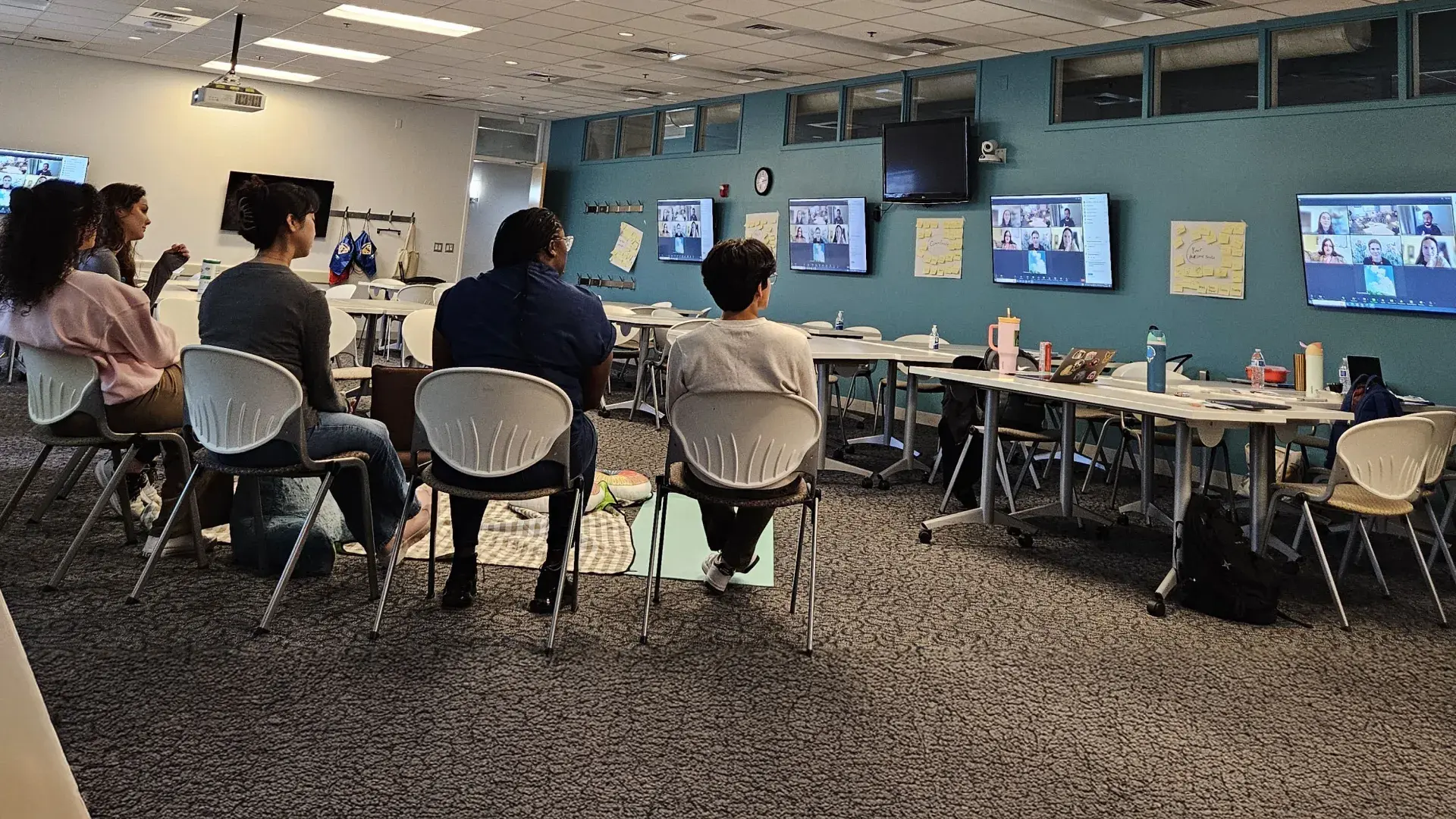
Every year, JEDI Fellows add to the work previous Fellows have done to advance equity at the MGH Institute by adding their own vision and values through the programs they undertake. What better way to begin their year-long work of adding to the foundation they’re building upon than by interacting with alumni of the JEDI Fellowship program, a cohort experience of IHP students who work with the JEDI Office and particular departments to help advance JEDI at the IHP.
Five new JEDI Fellows had the opportunity to do just that during their day-long orientation this past Saturday. School of Nursing Fellows Caresse Henderson and Sammy Freeman, School of Rehabilitation Sciences Dean’s Office Fellow HeeEun Jeon, Physician Assistant Fellow Christina Cepin, and Physical Therapy Fellow Lexi Nieves met program leaders from the JEDI office; took part in activities led by second-year Fellows, Brittany Stokes, Laura Gonzalez, and Karina Absalon; and connected with their supervisors to discuss their interests and goals.
They also heard from several alumni of the program on what inspired them to take on the role and details of the projects they worked on when they were Fellows. The alumni also shared information about the clinical experiences both as a student and now as professionals and how they are applying JEDI principles into their current situations, which resonated with members of the current cohort for a number of reasons.
“It was great to hear from them. When I did my placement, I was faced with discrimination and I didn’t know how to address it,” explained first-year Fellow HeeEun Jeon. “They have all felt that and they are all trying really hard to uphold the JEDI core values and incorporate that into their practice. It meant a lot to me that we can do that and can do our best to hold our principles and apply that to our practice.”
Since 2019, the JEDI Fellowship Program, modeled after a similar program Dr. Kim Truong had started at the PH Chan school of public health, has been preparing IHP students to become social justice leaders and educators in healthcare. The one-year or two-year Fellowships involve leadership training that leads to Fellow-run workshops and programs at the Institute, with a goal of having their work continue after graduation. Fellows receive leadership development, learn about JEDI issues, and work on both individual and group projects.
“JEDI Fellows leave behind a legacy for the current Fellows to follow but they also highlight the bigger trajectory of the program as they incorporate what they learned to bring social justice and equity principles into their clinical work,” said Callie Watkins Liu, who oversees the JEDI Fellows as director of JEDI education and programs. “The orientation is a chance to welcome the new Fellows and connect them with the history, as well as see the capacity for growth.”
